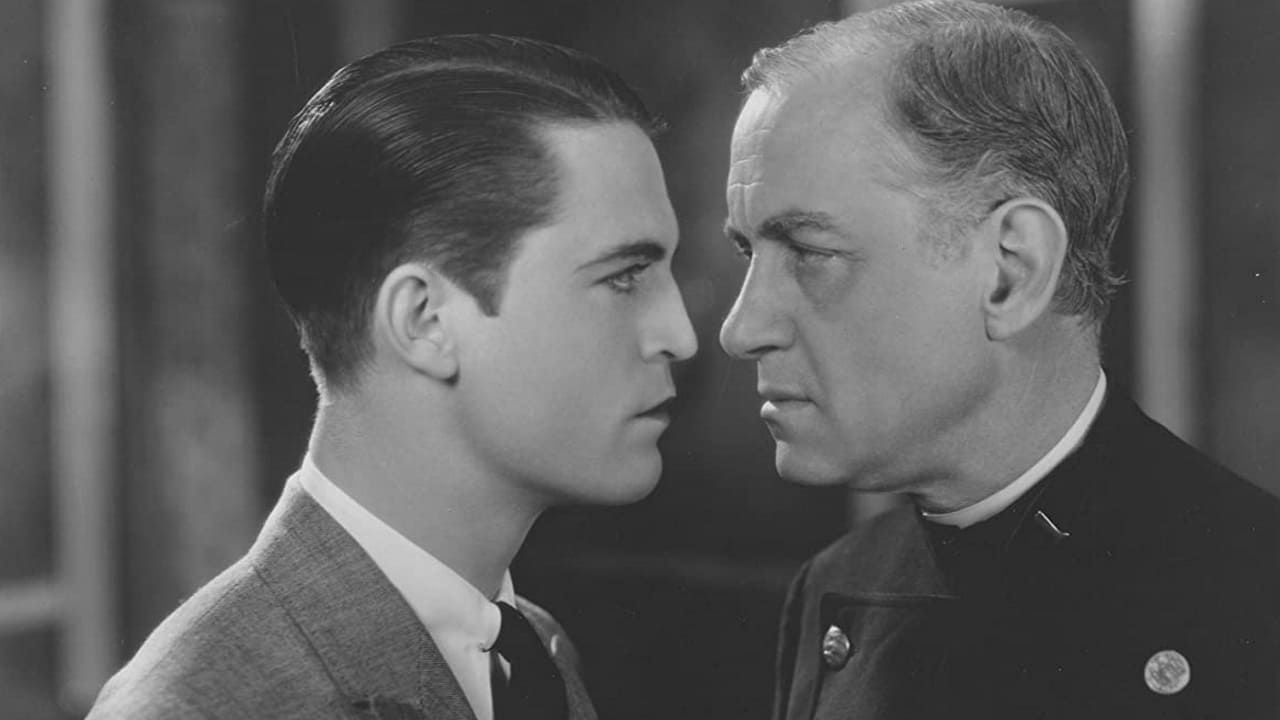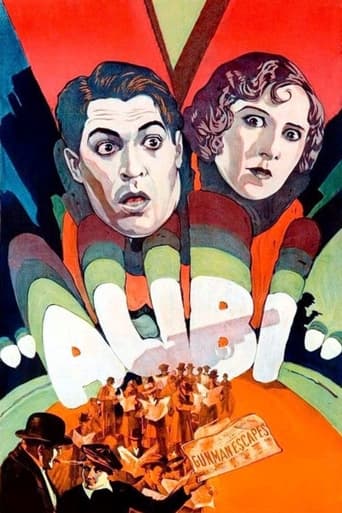Laikals
The greatest movie ever made..!
Majorthebys
Charming and brutal
Borgarkeri
A bit overrated, but still an amazing film
Nessieldwi
Very interesting film. Was caught on the premise when seeing the trailer but unsure as to what the outcome would be for the showing. As it turns out, it was a very good film.
anwarul210
Dire. When the first scene of the movie is a tracking shot to a line of chorus girls and eventually focuses on the most inept dancer you have ever seen, you know it's downhill from here. This talentless, ham-fisted, frumpy cow actually has a supporting role, which sets the bar very low for everyone else. However, they still manage to demolish any semblance of good acting. Chester Morris, who plays the gangster, is horrendous. As cardboard as the stage sets, he alternates between smugness and a perpetual scowl for most of the movie. At the end when his alibi is disproven, his personality completely changes unbelievably and he turns into a whimpering sap. The scene where he thinks he has been shot by the police and collapses on the floor is hysterical, as well as his actual death scene. On the topic of death scenes, a shout out has to go to Regis Toomey. Irritating throughout, his death scene has to be the longest ever put to film that I ended up shouting, "just die, already!" at him.The story itself may have been interesting for an easily-entertained 1929 audience, but with so many coincidences and implausible moments, as well as being boring, clichéd and dull, I was wishing this 91 minute masterpiece of crap was only 91 seconds long. This was nominated for Best Picture and Best Actor for Chester Morris. I despair.
evanston_dad
"Alibi" starts out promisingly enough, with a sort of sound symphony set to an expressionist montage of a man being released from prison. We hear the tread of wardens' boots, the clank of truncheons against metal bars, steel doors rasping and clanging -- it's almost like a musical number and pays homage to the new technology that had so recently hit screens and changed films for ever in the late 20s.But then "Alibi" starts talking, and things go quickly downhill from there. This Best Picture nominee from 1929 does manage to capture a striking visual style, which is something I can't say for the film that won the second Academy Award for Best Picture, "The Broadway Melody." But it's clear that the team behind "Alibi" didn't have much more of an idea of what to do with sound than the creators of that other film did.As with "The Broadway Melody," "Alibi" is more interesting as a blueprint for films that would spring from the same genre than it is on its own terms. In this case, that genre is the seedy gangster film that Warner Bros. would turn into an art form only a few years later.Chester Morris received an Academy Award nomination for Best Actor for his performance as the reformed gangster who's not really reformed, but his mugging is nearly uncomfortable to watch -- he would prove himself to be a quick learner in the sound medium and deliver a very good performance in "The Divorcée" only a year later. The abstract art direction by William Cameron Menzies was also recognized by the Academy with a nomination."Alibi" tricks a viewer into thinking that it's going to go to some rather interesting places that it ultimately doesn't. There's some attempts at obscuring the boundaries between the criminals and the cops that a more heavily enforced production code wouldn't allow in movies from a decade later, but it doesn't take that juxtaposition very far, and we always pretty much know whose side we're supposed to be on.As with "The Broadway Melody," "Alibi" is interesting for people who want to see what some of the early Academy Award winning and nominated movies look like, but it's not very enjoyable for anything else.Grade: C
Shaun
It's hard to watch this film out of the context of 1929 when it was first released. The Idea of a talking moving picture was still a novelty. In fact this film was released simultaneously with a silent version for those theaters that had yet to convert to sound. That said the biggest problem with this film is that it doesn't seem to know which side of the law it wants to side with, first it makes the cops out to be, I don't want to say bad guys, so let's just say unlikable. Then towards the end it's creates the criminal as well lets also say unlikeable. The problem is that it has one of the worst transitions I've ever seen. Again one has to go back to the time in which the film was made, this at the height of Al Capone and the bootlegging racketeering of that period and just before the stock market was to crash in October. Today many people see the police forces in a dualistic light, as being both there to serve and protect, and as villains with a corrupt politicized agenda. With this the film should hold up, but it doesn't. The main problem is that the characters are so flat and unlikable. It's hard to care one iota about who lives and who dies. In the end it's a film about jerks, plain and simple. I doubt however that when the film was released the audiences of the day had this same feeling. The idea of beating or threatening a criminal suspect was most likely looked at as not only acceptable but necessary. It's hard to come down on the film one way or the other, as I have mixed feelings about it as a whole. With that said the ending is one of the most anticlimactic endings I've seen since Chinatown. In that film, the whole concept of the movie was based around this idea of the inevitable of the outcome. Alibi fails in that it doesn't seem to hold on to any one concept for too long, instead making leaps that just feel awkward and clumsy. I think that what most likely amazed the audience was the fact that Alibi is one of the first films to start to play around with the sound design, having a moving camera and dancing and sound all working simultaneously creating a spectacle that most film goes of the day had never seen before. I can't say stay away from this film as it has it's place in the pantheon of cinema history, in part because it was nominated for Best Picture at the academy awards. However, if you're just looking for a classic film to watch on a Saturday night, you might want to steer clear of this one.
mgmax
This crime melodrama isn't terribly easy to sit through today, but you can see why it impressed everybody and got a Best Picture Oscar nomination in 1929-- director West is constantly experimenting with the possibilities of sound, dramatically raising and lowering voice volumes and playing with background noise, music (there's a not-bad dance number that foreshadows Busby Berkeley a little), etc.

